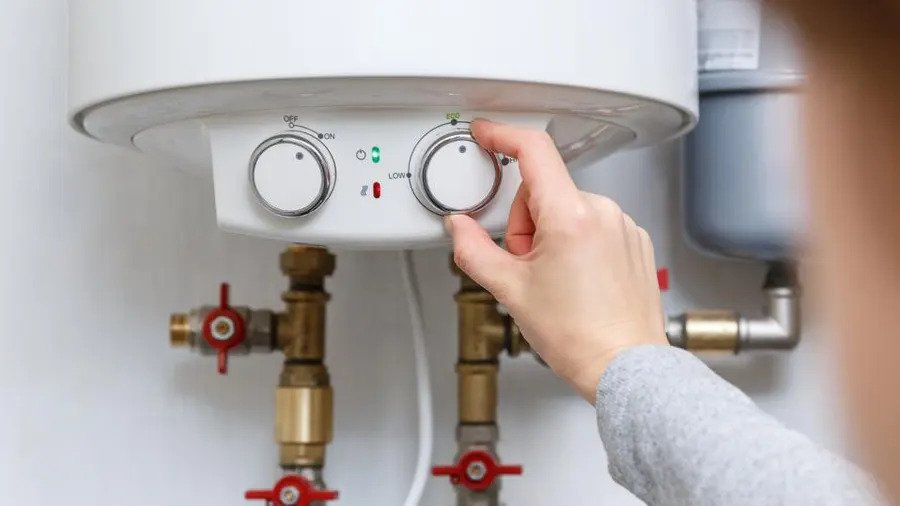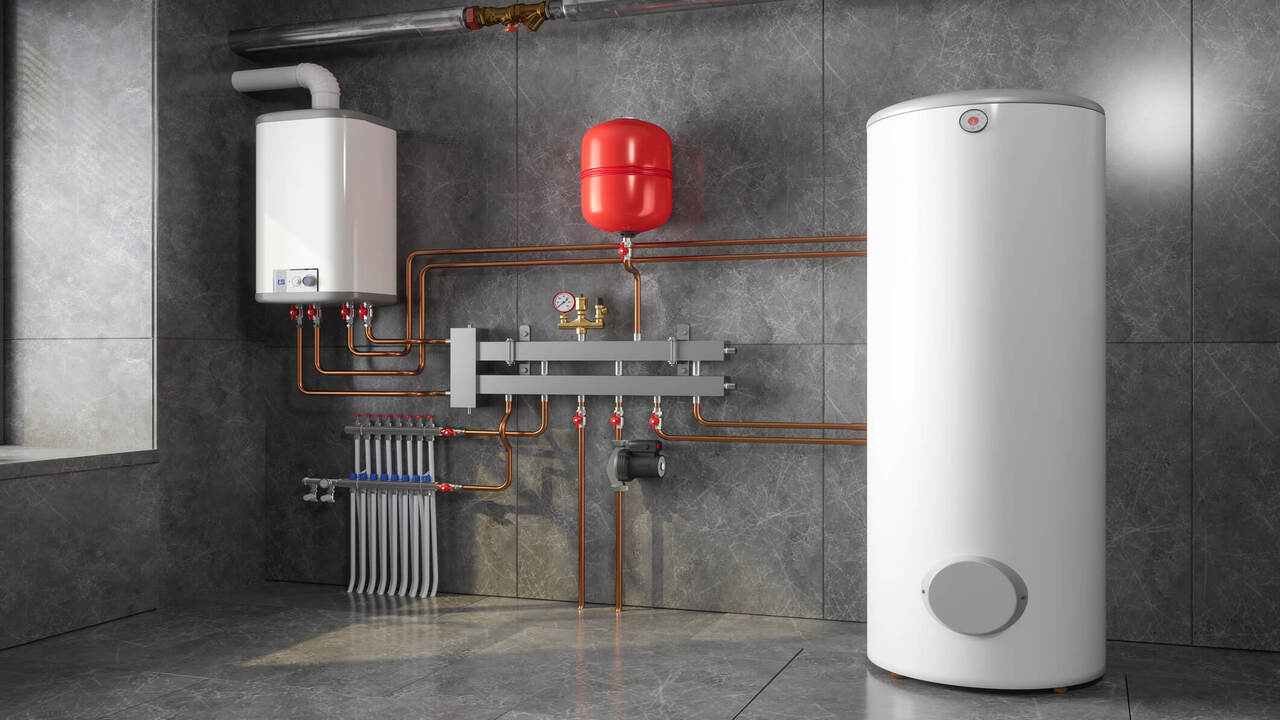Welcome to a guide on resolving smelly water problems with Alhambra water heaters! If you’ve noticed an unpleasant odor coming from your taps, it’s time to take action. At The Pro Plumbing, we understand the frustration of dealing with smelly water and are here to help. In this article, we’ll explore common causes of odors in water heaters, share tips on troubleshooting and maintenance, and provide effective solutions to ensure your water stays fresh and clean. Say goodbye to smelly water issues with our expert advice and practical tips!
Understanding the Causes of Smelly Water
Before we jump into solutions, let’s first understand why water from your Alhambra water heater might develop a foul odor. Several factors can contribute to this issue, and identifying the root cause is crucial for implementing the right remedy.
Bacteria Growth:
One of the most common reasons for smelly water is the presence of bacteria in your water heater. Bacteria thrive in warm environments, making water heaters an ideal breeding ground. Certain types of bacteria, such as sulfate-reducing bacteria (SRB) and heterotrophic bacteria, can produce hydrogen sulfide gas, which has a distinct rotten egg odor.
Anode Rod Reaction:
Alhambra water heaters typically contain an anode rod made of magnesium or aluminum, which helps prevent corrosion inside the tank. However, in some cases, the reaction between the anode rod and water can produce hydrogen sulfide gas, leading to odor issues.
Sediment Buildup:
Over time, sediment, minerals, and other debris can accumulate at the bottom of your water heater tank. This buildup not only reduces the heater’s efficiency but also creates an environment where bacteria can thrive, contributing to smelly water.
Hard Water:
Alhambra and surrounding areas are known for having hard water, which contains high levels of minerals like calcium and magnesium. While not directly responsible for odors, hard water can exacerbate sediment buildup and contribute to scale formation, indirectly affecting water quality.
Temperature Fluctuations:
Drastic changes in water temperature, such as setting the heater too high or too low, can also impact water quality and contribute to odors.
Now that we’ve identified potential causes let’s move on to practical steps you can take to address smelly water issues in your Alhambra water heater.
Troubleshooting and Maintenance Tips
For effective troubleshooting and maintenance of your Alhambra water heater, consider the following tips. Regularly flush the water heater to prevent sediment buildup, check and replace corroded anode rods, adjust the temperature settings to inhibit bacterial growth, install a water softener to reduce scale, and use water filtration systems to remove impurities. Additionally, for professional maintenance, repairs, and odor solutions, rely on trusted water heater repair services. For optimal performance, regularly flush your water heater to remove sediment, check and replace corroded anode rods, adjust temperature settings, install a water softener, and consider using water filtration systems for clean, odor-free water.
Flushing the Water Heater

Regular flushing of your water heater is essential for maintaining water quality and preventing odor problems. Follow these steps to flush your Alhambra water heater:
- Turn off the power or gas supply to the water heater and allow the water inside to cool down.
- Locate the drain valve near the bottom of the heater and attach a garden hose to it.
- Position the other end of the hose near a floor drain or outside where the hot water can safely drain.
- Open the drain valve and let the water flow out until it runs clear, indicating that sediment and debris have been flushed out.
- Close the drain valve, disconnect the hose, and turn the water supply back on to refill the tank.
Performing this flushing procedure every six months to a year can help prevent odor-causing sediment buildup and maintain water heater efficiency.
Check and Replace the Anode Rod
As mentioned earlier, the anode rod plays a vital role in preventing corrosion inside the water heater tank. However, if the rod is heavily corroded or depleted, it may contribute to odor issues. Here’s how to check and replace the anode rod:
- Turn off the power or gas supply to the water heater and allow it to cool.
- Locate the anode rod’s access point on top of the heater. This is usually a hexagonal nut or plug.
- Use a wrench to loosen and remove the nut or plug.
- Inspect the condition of the anode rod. If it appears heavily corroded or has a significant buildup of mineral deposits, it’s time for a replacement.
- Purchase a new anode rod compatible with your Alhambra water heater model and insert it into the tank.
- Tighten the nut or plug securely and turn the water supply back on.
By replacing the anode rod as needed (typically every 3-5 years), you can prevent corrosion-related odors and extend the lifespan of your water heater.
Temperature Adjustment
Ensure that your water heater’s temperature is set to an appropriate level (typically between 120°F and 140°F) to prevent bacterial growth and minimize energy consumption. Avoid setting the temperature too high, as this can accelerate sediment buildup and increase the risk of scalding.
Effective Solutions for Smelly Water
In addition to troubleshooting and maintenance steps, several solutions can effectively address smelly water issues in Alhambra water heaters:
Chlorination:
Chlorinating the water heater involves introducing chlorine bleach or a chlorine-based solution into the tank to disinfect and eliminate bacteria. Follow safety guidelines and consult a professional for proper chlorination procedures.
Hydrogen Peroxide
Treatment: Similar to chlorination, hydrogen peroxide can be used to sanitize the water heater and neutralize odors caused by bacteria. Consult with a plumbing expert for guidance on using hydrogen peroxide safely.
Water Filtration Systems:
Installing a water filtration system, such as activated carbon filters or reverse osmosis systems, can help remove impurities, odors, and contaminants from your water supply, including those originating from the water heater.
Regularly Clean and Disinfect Plumbing Fixtures:
Regularly clean and disinfect plumbing fixtures to maintain hygiene and prevent odors. Use mild cleaners and brushes to remove buildup. For deeper cleaning and unclogging drains, consider professional drain cleaning services. Experts use specialized equipment like hydro-jetting and drain snakes to remove stubborn clogs, grease, and debris from pipes. Regular maintenance and professional cleaning ensure smooth water flow and eliminate potential sources of smelly water in your plumbing system.
Address Plumbing Leaks Promptly:

Address plumbing leaks promptly to prevent water damage and potential mold growth. Look for signs such as water stains, dampness, or unusual water bills. If you suspect a leak but can’t locate it, consider professional leak detection services. Experts use advanced tools like thermal imaging and acoustic sensors to pinpoint hidden leaks quickly and accurately, allowing for timely repairs and preventing further damage to your plumbing system.
Test Your Water Quality:
Consider conducting periodic water quality tests to assess pH levels, mineral content, and the presence of contaminants. Testing can help identify potential sources of odor and guide you in selecting appropriate treatment methods.
Use Water-Conserving Fixtures:
Installing water-conserving fixtures such as low-flow faucets and showerheads can help prevent water stagnation, which can contribute to bacterial growth and odors.
Practice Proper Waste Disposal:
Avoid pouring chemicals, oils, or other pollutants down drains or toilets, as these can contaminate your water supply and contribute to foul odors.
Dealing with Specific Odors
While the “rotten egg” odor associated with hydrogen sulfide gas is a common issue, there are other types of odors you might encounter, each with its potential causes and solutions:
Musty or Earthy Odors:
These odors can result from mold or mildew growth in plumbing fixtures or damp areas. Improve ventilation, address moisture issues, and clean affected areas thoroughly to eliminate these odors.
Metallic or Chemical Odors:
If your water has a metallic or chemical smell, it could indicate the presence of minerals, such as iron or manganese, or chemicals from plumbing materials. Consider installing appropriate filtration systems or water treatment devices to address these specific odors.
Professional Assistance and Resources
For professional assistance with water quality issues in Alhambra, consider consulting plumbing experts like The Pro Plumbing. They offer services such as water heater repair, leak detection, drain cleaning, and more to ensure optimal water quality and plumbing performance. Additionally, consider upgrading to tankless water heaters, which improve water quality by eliminating stored water and reducing the risk of bacterial growth and sediment buildup compared to traditional tank-based systems.
Additionally, resources such as local water quality agencies, environmental organizations, and plumbing associations can provide valuable information, water testing services, and guidance on addressing water quality issues in your area.
FAQs
How do I stop my hot water heater from smelling?
To stop your hot water heater from smelling, start by flushing the tank to remove sediment and debris that can contribute to odors. Check and replace the anode rod if it’s corroded, as this can also cause odors. Consider installing a water filtration system or using a water softener to improve water quality and minimize odors in your hot water.
What is the treatment for smelly water?
The treatment for smelly water depends on the underlying cause. Chlorination with chlorine bleach or hydrogen peroxide can disinfect and neutralize odors caused by bacteria. Installing water filtration systems, using water softeners, and addressing plumbing issues such as leaks or sediment buildup can also help treat and prevent smelly water problems.
How do you fix smelly well water?
To fix smelly well water, start by identifying the source of the odor, such as sulfur compounds or bacterial contamination. Treatments may include installing a whole-house filtration system, using chlorine injection or hydrogen peroxide to disinfect the water, or addressing any issues with the well’s construction or maintenance. Consult with a water treatment professional for a customized solution based on your well water’s specific issues.
Why does my hot water heater smell like sewer?
A sewer-like smell from your hot water heater can indicate bacterial growth, typically caused by anaerobic bacteria reacting with sulfur compounds in the water. This reaction produces hydrogen sulfide gas, which has a distinct rotten egg odor. Flushing the tank, checking and replacing the anode rod, and using chlorine treatments can help eliminate the odor and prevent its recurrence.
Can a water heater cause smelly water?
Yes, a water heater can cause smelly water if there are issues such as bacterial growth, sediment buildup, or a reaction between the anode rod and water. Bacteria like sulfate-reducing bacteria (SRB) can produce hydrogen sulfide gas, resulting in a rotten egg smell. Regular maintenance, flushing the tank, and replacing corroded parts can help prevent and address smelly water problems from the water heater.
Conclusion
Dealing with smelly water issues in Alhambra water heaters requires a combination of proactive maintenance, troubleshooting techniques, and effective solutions. By understanding the causes of odor problems, regularly maintaining your water heater, and implementing appropriate remedies, you can enjoy fresh, clean water without unpleasant odors.
Remember to follow safety precautions, consult with experts when needed, and prioritize proper maintenance to ensure your Alhambra water heater operates efficiently and provides high-quality water for your household or business. Say goodbye to smelly water and hello to a more enjoyable water experience!
We hope this guide has been informative and helpful in addressing your smelly water concerns. If you have any questions or require professional assistance, don’t hesitate to contact The Pro Plumbing or a qualified plumbing professional in your area. Cheers to clean, odor-free water!

